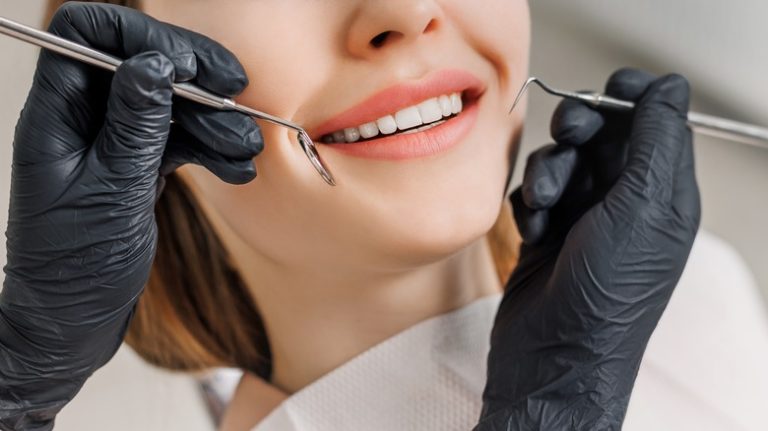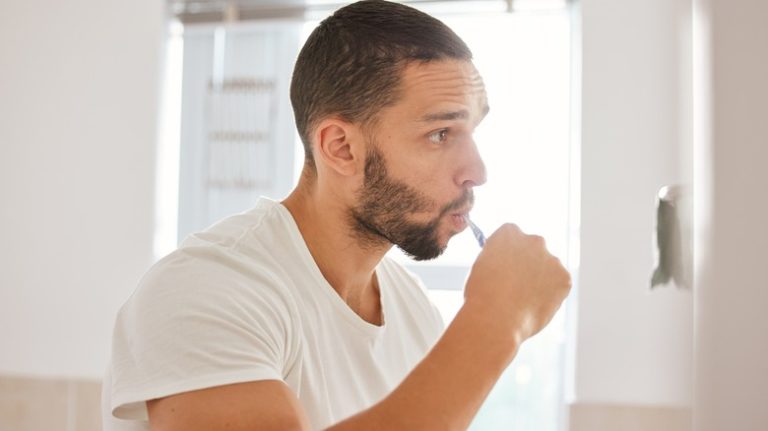In the movie Little Shop of Horrors, Steve Martin plays a dentist who has (as he gleefully sings) “a talent for causing things pain.” Of course, this is an over-the-top comedy, so Martin is playing an over-the-top character, but within his disturbing musical number is a tiny kernel of truth: Most people have a negative association with the dentist.
According to the American Dental Association, around 100 million Americans do not go to the dentist each year. The irony is that these regular checkups can help head off problems before they become painful or inconvenient (not to mention expensive). And yet people not only avoid going to the dentist but potentially compound oral hygiene issues further by doing one more thing: lying.
Okay, no judgment here, but let’s be honest. With those bright examining lights overhead, that dental chair can start feeling like the hot seat when you’re asked about, for example, flossing. So you might exaggerate things a bit or not volunteer information that you know you should. Understandable? Yes, of course. But the dentist can tell when you’re not being truthful because your mouth and behavior are full of clues — and not being honest can hurt your oral health.
I always brush my teeth the right way
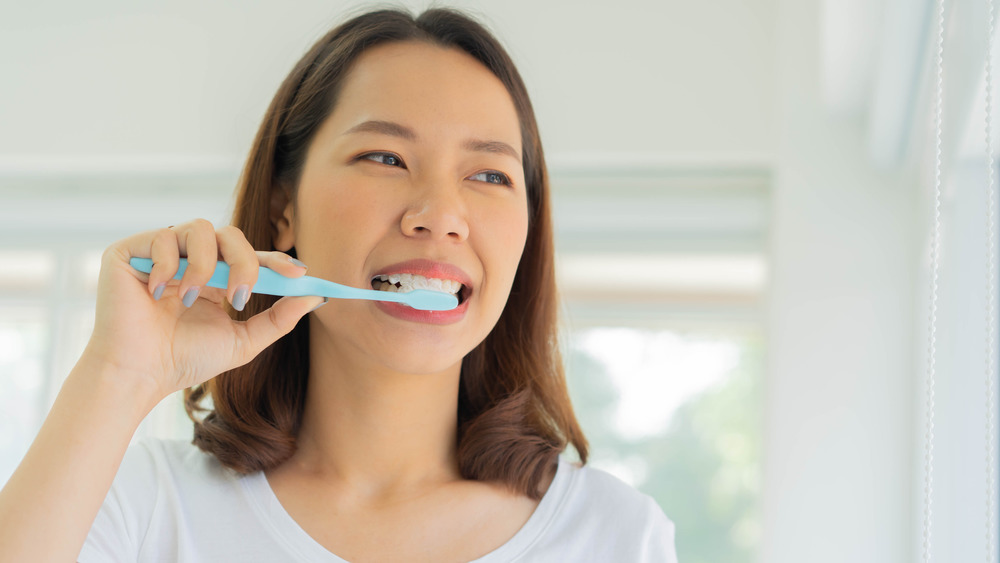
Life can get in the way of dental hygiene. Your alarm clock doesn’t go off, so you have to skip brushing your teeth. The kids are restless before bedtime, and by the time they’re asleep, you can barely stay awake let alone work a toothbrush. The American Dental Association (ADA) advises brushing your teeth for two minutes twice a day. But do you? And how thoroughly, really?
If you lie to your dentist about your tooth-brushing habits, chances are they’ll know. As dentist Ana Paula Ferraz-Dougherty confirmed in a video on the ADA’s website, “I can tell if you’re lying when you say that you are brushing and flossing, and you’re really not. Why? Because when we check your teeth, we use our little instruments to go in there, and if I find plaque along the gumline, that tells me that you’re not brushing properly.”
Even if you keep up with your brushing routine, Medical News Today has some tips to maximize your efforts. You should brush your teeth in circular motions at a 45-degree angle to your gumline — and don’t forget to brush your tongue. Plus, you might want to avoid brushing your teeth after using whitening strips.
My last checkup wasn’t that long ago
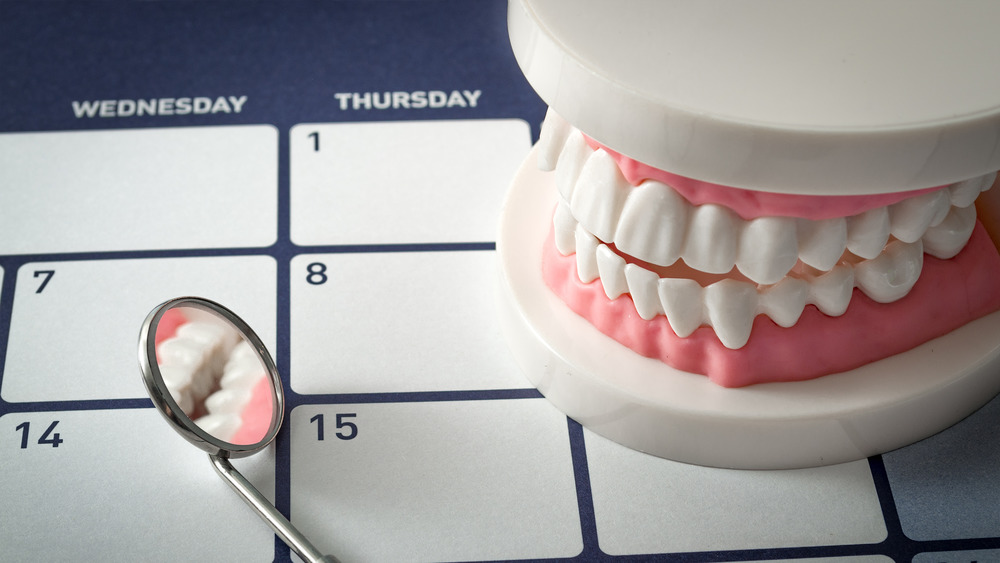
Does this sound like you? You’re going through the mail when you find a postcard reminder that you need to set up your next dentist appointment. You think “this is important,” but somehow you don’t get around to contacting the dentist’s office.
Don’t feel bad. This isn’t uncommon. The American Dental Association explains on its website that many Americans don’t see a need to go to the dentist unless they are experiencing pain or a problem. Therefore, it’s not a shock that a high number of patients lie about the date of their last appointment. According to a survey by DentaVox, 58 percent of those surveyed admitted to not being honest with their dentist about appointment-related details, including how long ago they had their last checkup (via News-Medical.net).
In some ways, this lie is the least likely to skate under the radar because your dentist will have a record of your last visit. And even if you switch dentists, your lie becomes far less believable if you have a buildup of plaque that should have been taken care of at your “recent” cleaning. Plus, not visiting a dentist regularly can lead to bleeding gums when you do eventually come in for your appointment.
Of course I floss
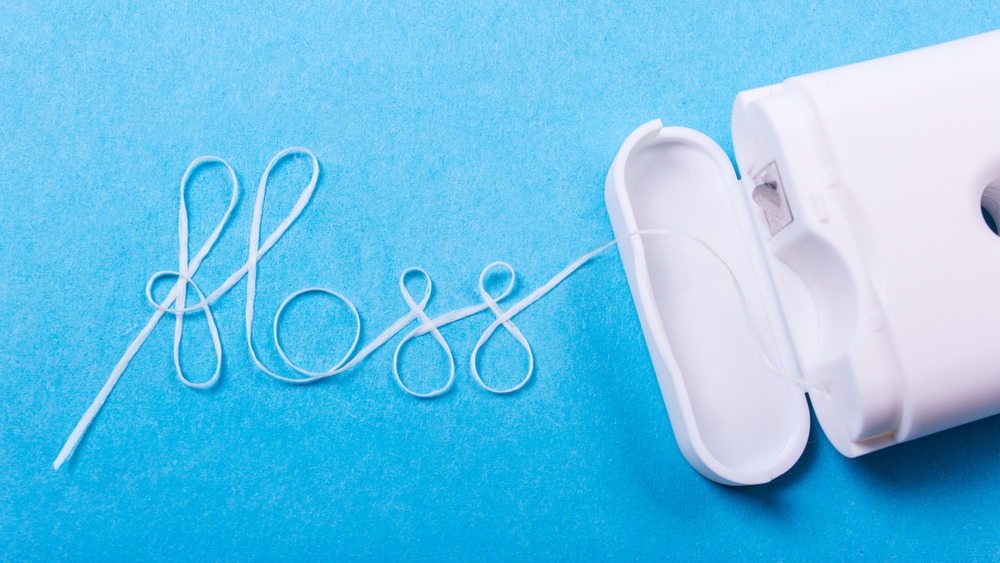
Shutterstock
You’re in a rush. You’re multitasking like there’s no tomorrow. You quickly brush your teeth and gargle a little mouthwash to kill that nasty case of morning breath before dashing out the door. Unfortunately, you “forgot” to floss. And when it comes time for that checkup, you “forget” how often you don’t get around to flossing in general.
It happens, but again, your dentist can tell. Dental Products Report notes a person will claim that they’re regularly flossing, and yet their gums aren’t as healthy as they should be. Yes, it’s your gums that give you away.
As dentist Jonathan Schwartz told Healthline, floss is “really a way to stimulate the gums, reduce plaque, and help lower inflammation in the area.” And dentist Ana Paula Ferraz-Dougherty points out in her video on the ADA’s website, “We check … in between the teeth to make sure that there’s no plaque, and if there is, then that tells me that you are not flossing.” Fortunately, there are devices like ready-to-use dental flossers that can help make flossing easier (via Healthline).
I don’t really drink alcohol

Shutterstock
If you don’t lie to someone’s face, is it really a lie? Yes, and that’s true even when filling out paperwork. Case in point: Craig “The GratiDude” Jones detailed in an article for Medium that he lied about how much alcohol he consumes when filling out paperwork at the dentist. Okay, okay — but unless you have alcohol on your breath, can a dentist really tell if you’re lying about drinking? Well, at least when it comes to wine, yes.
As dentist Lauren Becker explained to Health, when you drink red wine, and you have plaque on your teeth, the results can be stains on your smile. She further revealed, “Brushing too soon [after drinking red wine] can cause the acidic wine to penetrate the pores in your teeth and can actually erode the enamel.” That’s right, as Medical News Today explained, your enamel has extremely tiny pores.
If you think drinking white wine is the answer, think again. A study by New York University researchers found that the acidity of white wine can interact with substances found in foods like tea, leaving your teeth more vulnerable to staining (via Health). And unfortunately, this interaction can happen with any type of wine, regardless of color.
I never drink soda
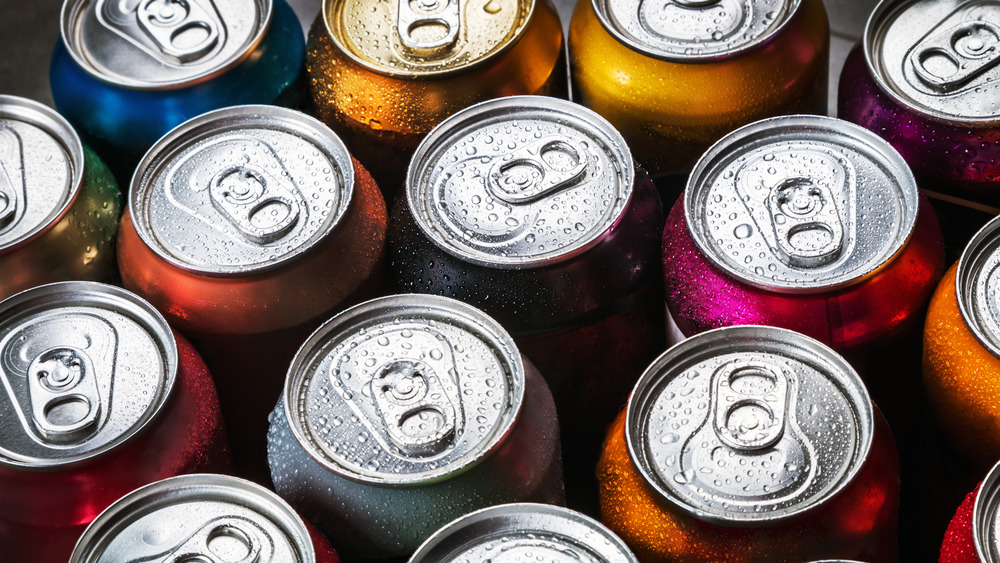
Shutterstock
Chances are one of your earliest memories of soda is from childhood. And while this classic beverage has been challenged as unhealthy with possible links to obesity and type 2 diabetes, is it really something people lie about to their dentist? Well, according to a survey from DentaVox, 73 percent of those surveyed confessed to lying to their dentist, and 20 percent of those patients admitted to lying about how often they drink carbonated beverages like soda (via Dentistry Today). It seems soda is not an uncommon vice to hide when sitting in the dentist chair.
Can a dentist tell if you drink a lot of soda since it doesn’t leave stains? In this case, it’s not what the drink leaves behind but what it takes away that can reveal the truth. As Healthline noted, soda can erode the outermost layer of your teeth (called the enamel), which can lead to cavities. The more cavities your have, the more your dentist may suspect you really are a soda drinker.
I don’t grind my teeth
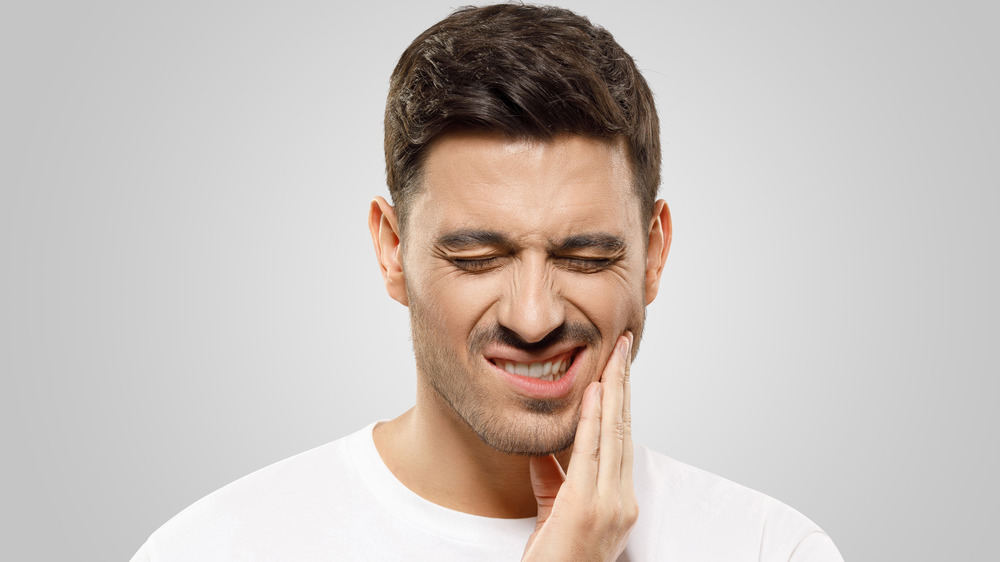
Shutterstock
Even with proper diet and oral hygiene, your teeth can become damaged. Imagine this scenario: You’re experiencing tooth pain and, eventually, you make an appointment to see your dentist. When you get there, he asks if you grind your teeth, and not wanting to admit you’ve been stressed out lately, you lie and say “no.” After all, it’s none of your dentist’s business if you’re stressed, right?
Well, in this case, the fact you’re grinding your teeth is not only your dentist’s business but also crucial to resolving your problem. Massa Dental Center’s website said point blank that dentists “can tell when you’re lying.” The center continued, writing, “We can tell the difference between tooth damage from trauma and what comes from clenching and grinding teeth.”
As Livestrong explained, grinding and clenching your teeth (also called bruxism) can lead to flatter and fractured teeth, chipped fillings, and damaged crowns. This is quite a bit different from teeth that have been badly damaged from trauma, which usually turn a different color like gray (via Healthline). Other telltale signs of trauma (and not bruxism) are gumline swelling and bad breath.
I don’t smoke
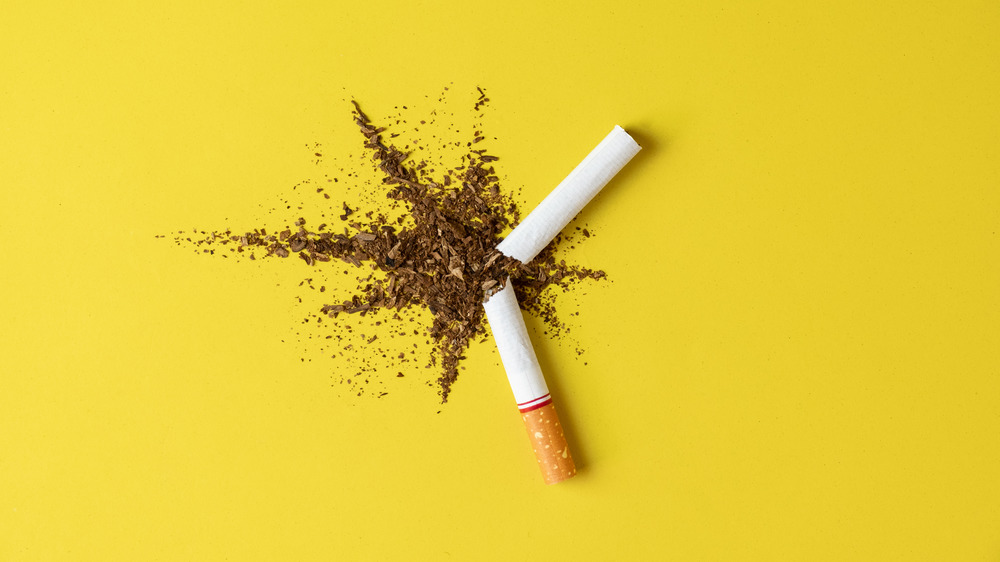
Shutterstock
Now, let’s be fair. It’s not easy to quit smoking. Many people have to try several times before successfully giving up the habit. (If you need help quitting, the Centers for Disease Control and Prevention have some helpful resources). Nevertheless, lying to your dentist about smoking or trying to kick your smoking habit is not a good plan.
On his website, dentist Nathan Mogren listed smoking as something you should never lie to your dentist about — not just because of the possible impact it could have on your overall wellness, but also on your oral health. “If you’re a smoker trying to hide your habit, your dentist will know instantly. Your teeth will tell the story,” he explained. “When you smoke, your teeth will begin to stain.” Why? Because, nicotine and tobacco products in general have particles that stick to your enamel’s pores.
Beyond impacting your teeth’s appearance, smoking overtime can cause more plaque and tartar to buildup inside your mouth, Dr. Mogren explained. Other signs you smoke include bad breath, gum disease, and inflamed salivary glands.
Sorry I’m late, I got lost

Shutterstock
So you’ve finally set up that dentist appointment. But the day comes, and you take your sweet time leaving the house. You don’t use your GPS even though you normally would for any other place you haven’t been in a while. And so, you show up late, inconveniencing the office staff. Now, this could have been just a case of bad luck, but sometimes a nervous patient may self-sabotage getting to their dentist appointment on time. Granted, it could be they’re not even aware they’re doing it or a case of nerves temporarily clouding their thinking — but trying to downplay anxiousness isn’t helpful.
Kyrene Family Dentistry addressed this phenomenon on their website. “If you are not transparent with your dentist about your fear of dental checkups and procedures, your future visits may also be affected,” they explained. Instead of making up an excuse like “I got lost on my way here,” they advised patients to “tell your dentist if you’re nervous.” Your dentist “might be able to give you oxygen to lower your anxiety or take other steps to calm you during the visit.”
I’m fine

Shutterstock
New scenario: You’ve set up your dentist appointment and make it there on time. But once you’re in that little room wearing that disposable bib, you can feel your nerves flaring up. Maybe you’re flashing back to an unpleasant procedure you’ve had in the past like getting a cavity drilled or having a root canal. Your heart is racing. Your palms are sweaty. But when the dentist comes in and asks you how you are, you say, “I’m fine.”
While putting on a brave face is usually praiseworthy, in this case it’s not doing you or your dentist any favors. According to the Princeview Dental Group, “Your dentist can tell if you’re feeling a little anxious or scared thanks to your body language (clenched fists and jaw, squinting eyes, tightened lips, etc.) and there’s nothing wrong with admitting it or talking openly about it.” Unless you’re a very good actor, your dentist probably knows when you’re not, in fact, “fine.”
Princeview Dental Group encourages patients to be open about their fears. “In fact, it’s better if you’re upfront about any anxiety you may be feeling because your dentist can offer some words of encouragement or even administer some nitrous oxide to help calm your nerves.”
No, that doesn’t hurt
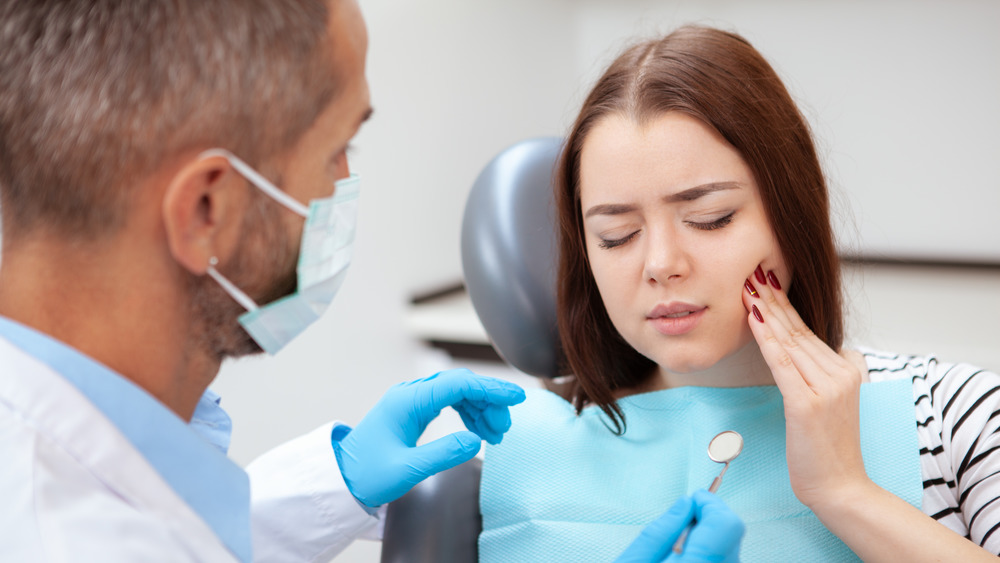
Shutterstock
In the same vein as toughing out nerves is toughing out pain. After all, no one wants to look like they can’t handle “a little discomfort” and be seen as a whiner, right? Well, even when you pretend you’re not in pain, your dentist can tell the truth.
According to dentist Solomon Brotman’s website, “When you are in pain, often times your eyes will flinch or clench shut. Your tongue and legs may tighten as well.” So, even if your dentist is only looking in your mouth and not at your eyes, the tight muscles in your tongue is your “tell” that you’re hurting.
While Steve Martin’s dentist character from Little Shop of Horrors took great pleasure in causing others pain, real dentists, however, are medical professionals who are not trying to hurt their patients. In fact, Dr. Brotman’s website states that if a patient is experiencing pain “there is no shame in talking to your dentist about it,” adding, “they might be able to use a topical anesthetic, or you could ask about taking pain medications before your next appointment.”
I don’t bite my nails

Shutterstock
After 2024, it’s a wonder everyone in the world isn’t biting their nails. This nervous habit may begin in childhood, but for many, it continues well into adulthood. But aside from a messy, uneven manicure, can a dentist really tell you’re a nail biter even if you claim you’re not?
Dentist Heidi Brandenburg’s website explained that a standard dental procedure can reveal the truth about a person’s nail-biting habit. “Nail biters often have tiny chips or cracks in their teeth that may be invisible to the naked eye but can show up on dental X-rays. These cracks provide a great place for bacteria to nestle in and increase the likelihood of decay,” the site revealed.
In addition, constant nail biting can cause issues with your jaw such as TMD. And guess what? One symptom of this disorder (and a tell that you may be biting your nails) is a clicking noise in your jaw. Plus, the bacteria from your nails can cause infections and canker sores in your mouth, as Delta Dental explained, and bleeding gums because of bruised teeth (via Healthline).
I don’t have an eating disorder
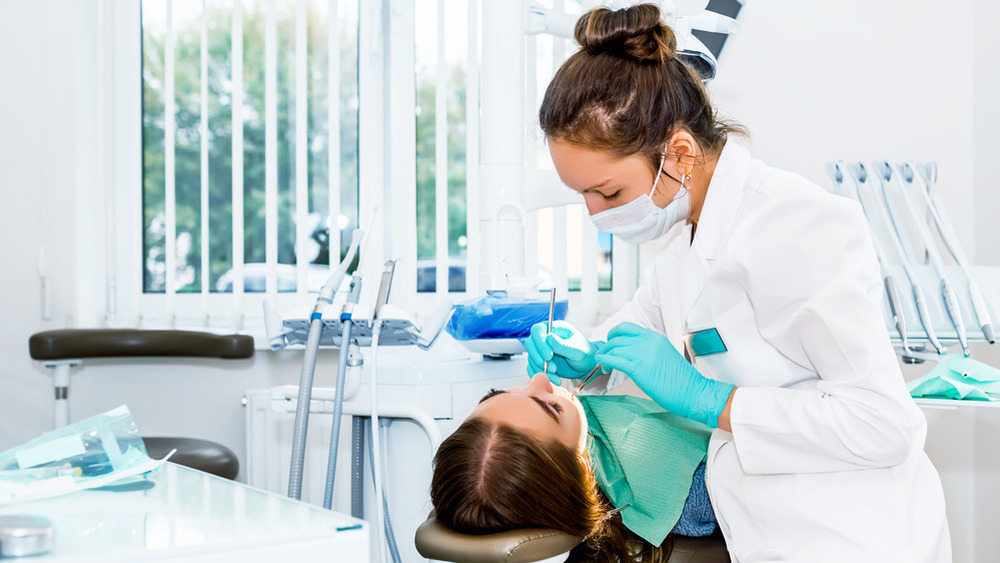
Shutterstock
Wait, this comes up at dentists’ offices? It can since the condition of a person’s teeth can point to a specific type of eating disorder. According to the National Institute of Mental Health, bulimia nervosa, or bulimia, involves binge-eating and vomiting. Excessive vomiting, however, does damage to teeth, which can raise red flags for a dentist.
In an article for Dentistry IQ, dentist Stacey L. Gividen wrote about a 27-year-old female patient who seemed healthy until she saw “notable erosive lesions on the lingual aspect of her maxillary teeth.” She soon figured out the cause. “It was clear, due to the pattern of wear, that this patient had a history of bulimia,” she continued. Eventually, the patient told Dr. Gividen about her eating disorder. The woman was initially embarrassed but ultimately grateful and relieved that she could tell someone the truth and get help.
If you are struggling with an eating disorder, or know someone who is, help is available. Visit the National Eating Disorders Association (NEDA) website or contact NEDA’s Live Helpline at 1-800-931-2237. You can also receive 24/7 Crisis Support via text (text NEDA to 741741).
I don’t have a history of…
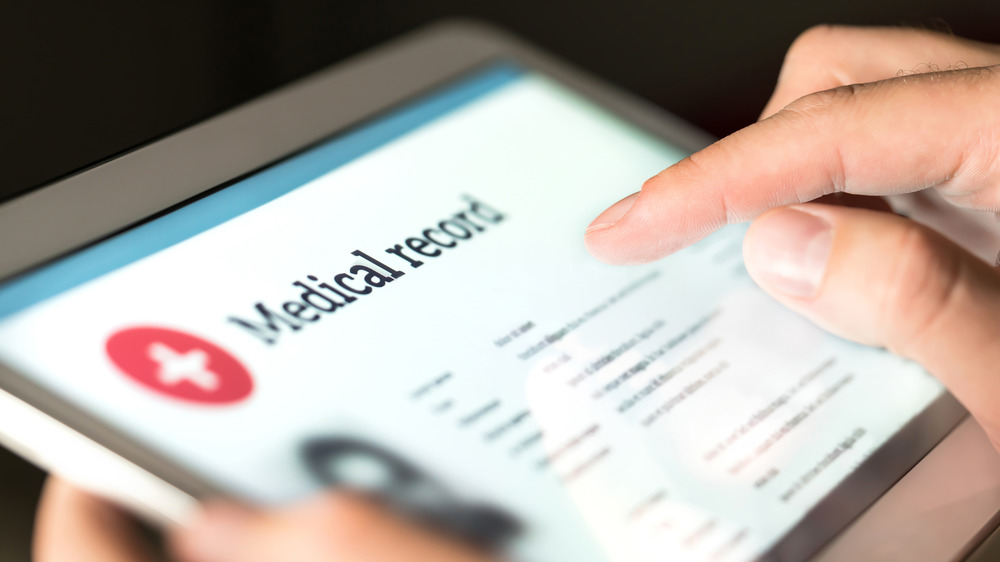
Shutterstock
Filling out medical forms can be tedious, especially when they seem to be loaded with questions that have nothing to do with your teeth. It may be tempting to mark off answers quickly without really thinking through your or your family’s medical history. But even if you don’t see a connection between the questions and your oral health, your dentist needs the most accurate answers.
Infinity Dental Associates’ website explained, “Lying about your medical history or habits can prevent you from getting the treatment you need.” And iSmile Dental Care takes it one step further: “We encourage you to be honest about your health history even [if] you think it has absolutely nothing to do with your mouth because, in fact, many diseases can affect your oral health.”
So what could be so important to your teeth that also seems to have nothing to do with them? According to iSmile Dental Care, a number of conditions like heart problems, asthma, and autoimmune conditions are worth mentioning. In addition, a dentist needs to know if you have a pacemaker or have had any joints replaced.
I’m not pregnant
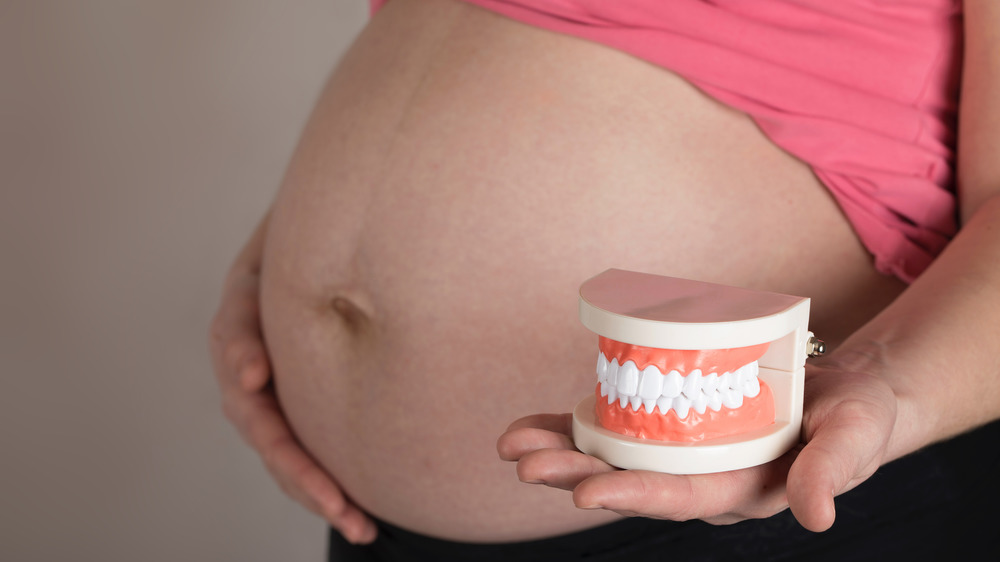
Shutterstock
There are many reasons why a woman may not want anyone to know she is pregnant. While hiding a baby bump may be more difficult the longer someone is expecting, a dentist can see signs of pregnancy just by looking inside a woman’s mouth.
According to Delta Dental, when a woman is pregnant, she may develop what is known as “pregnancy gingivitis,” as well as “pregnancy tumors.” Now, don’t freak out because of the word “tumors” or even the word “gingivitis.” Both conditions can be treated — but only by being honest with your dentist. In fact, Delta Dental refutes the notion that “it’s none of the dentist’s business whether I’m pregnant” by explaining that “you may be at risk for certain dental conditions, and your pregnancy may limit the treatment options available.”
Beyond pregnancy gingivitis and pregnancy tumors, women experiencing morning sickness, and thus vomiting, could be damaging the enamel of their teeth. Fortunately, there are options to help protect your teeth, like using a mouthguard. Your dentist will likely have many other recommendations about “ways to reduce the harm,” as Delta Dental revealed.


